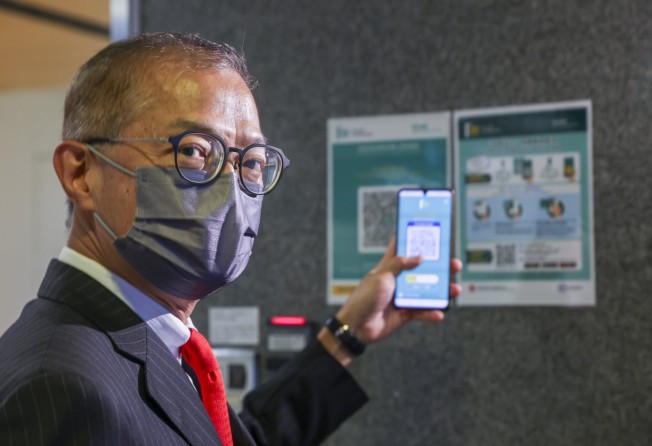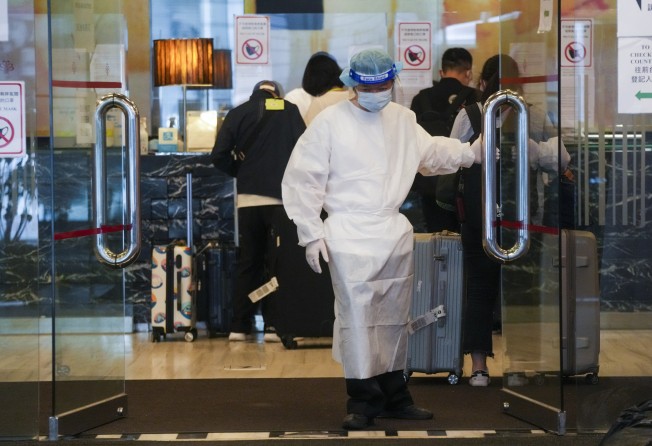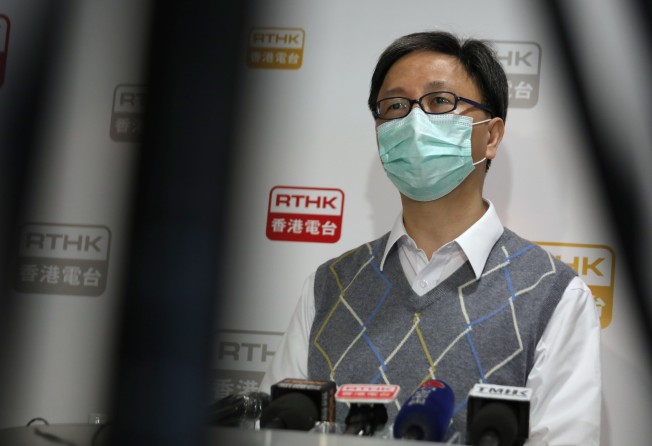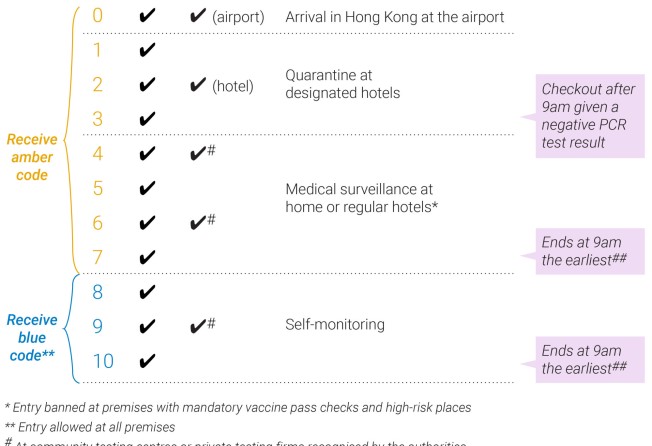
Coronavirus: easing quarantine measures won’t increase transmission risks, Hong Kong health minister says, as city logs 4,045 cases
- New quarantine arrangement, comprising three days in a hotel and four days at home, will be implemented from Friday
- Microbiologist suggests replacing current system with seven days at home under medical surveillance

Hong Kong’s health minister has dismissed fears that the easing of quarantine measures for overseas arrivals will increase Covid-19 transmission risks in the community, but declined to lay down a time frame for the city to fully reopen for travellers.
A day after the government announced it was cutting the hotel quarantine period from seven to three days, Secretary for Health Lo Chung-mau on Tuesday said officials needed to assess the local epidemic situation and look into relevant data before completely scrapping the arrangement and allowing a week of home medical surveillance instead, as suggested by a leading microbiologist.
“We have yet to fully control the local situation and the figures are still maintained at the 4,000 mark. There is also a threat of new Covid-19 variants,” he said. “I believe that we cannot give such promises [to scrap hotel quarantine] at this moment.”
Hong Kong reported 4,045 new coronavirus infections on Tuesday, 262 of which were imported, and three more deaths. The overall tally stands at 1,393,327 cases and 9,550 related fatalities.

In another development, the proportion of local Covid-19 cases involving Omicron subvariants BA.4 and BA.5 recorded in the past seven days had reached 10 per cent as of Monday. The new and highly transmissible subvariants are the dominant strains in the United States and have gained prevalence elsewhere, including Britain and Portugal.
The government also announced the extension of current social-distancing rules for two more weeks from Thursday to August 24, keeping a dine-in curfew at restaurant between midnight and 5am in effect.
A negative rapid test result obtained within the past 24 hours must be presented before entry to bars and pubs. Residents must also keep their masks on in public areas and on public transport, while group gatherings of more than four people are banned.
The city will implement the new quarantine measures for overseas arrivals from Friday. Travellers must stay at quarantine hotels for three days and then spend four at home or in other accommodation, with limited freedom of movement.
The government said travellers who had stayed in quarantine hotels for at least three nights between August 3 and Monday would be allowed to leave “in an orderly manner” between Tuesday and Friday after returning a negative polymerase chain reaction (PCR) test.
In response to reports that some travellers were unable to leave on Tuesday despite being in isolation for three days, Dr Chuang Shuk-kwan of the Centre for Health Protection said due to the huge number of people who had fulfilled the requirement, hotels might be unable to deal with all the checkouts at once.
“I know hotels will successively arrange [checkouts]. Even if the travellers have stayed for three days, the hotels will need to prepare all sorts of information such as test results before handling their checkouts,” she added.
Defending the new quarantine policy, Lo suggested it would not bring a “significant change” in community cases given that the infection rate of overseas arrivals only stood at 4 per cent, with half uncovered by testing at the airport.
“This is why we rolled out the new health code system to restrict [travellers’] activities. The more frequent PCR test also allows us to identify Covid-19 patients earlier,” he told a radio programme.
Arrivals will have to download the city’s “Leave Home Safe” app. A red code will be shown on the app of infected travellers, who will be sent to official isolation centres if they test positive at designated quarantine hotels. Those under hotel isolation and home medical surveillance will get an amber code on Day 0, which will return to blue when they finish the quarantine period.
Those with an amber code can go to work, school and shops, as well as take public transport, but are banned from high-risk premises such as restaurants and bars.

Earlier, University of Hong Kong microbiologist Ho Pak-leung had suggested the government cancel hotel quarantine by the end of August after ensuring the new “3+4” arrangement was carried out smoothly.
He noted that imported cases only accounted for a small percentage of infections in Hong Kong and would not pose a huge risk to the community as long as no new coronavirus variant was brought into the city.
“There is always a fluctuation in daily local infection figures … There must be space for the government to take another leap forward to the ‘0+7’ arrangement,” he said, referring to spending seven days at home under medical surveillance.
Echoing Ho, pro-establishment lawmaker Michael Tien Puk-sun also called for a total lifting of hotel quarantine, adding that he believed the proposal would not affect the border reopening with mainland China.
“In my view, having a seven-day health monitoring surveillance period and barring travellers from entering high-risk venues were the minimum requirements [for the mainland side]. It’s absolutely not ‘lying flat’,” he told a radio show, referring to a movement which swept the mainland last year on doing the bare minimum to get by.

On Monday, Chief Executive John Lee Ka-chiu stopped short of saying if there was room to further reduce the quarantine period, but vowed he would try his best not to roll back measures.
Tony Wong Chi-kwong, deputy government chief information officer, said premises would still be able to identify those with red or amber codes even if they did not update their app to the latest version or if they used paper records because the person was younger than 15 or older than 65.
Premises have a grace period of 14 days until August 23 to update their QR code verification scanner mobile app to the latest version, he added.